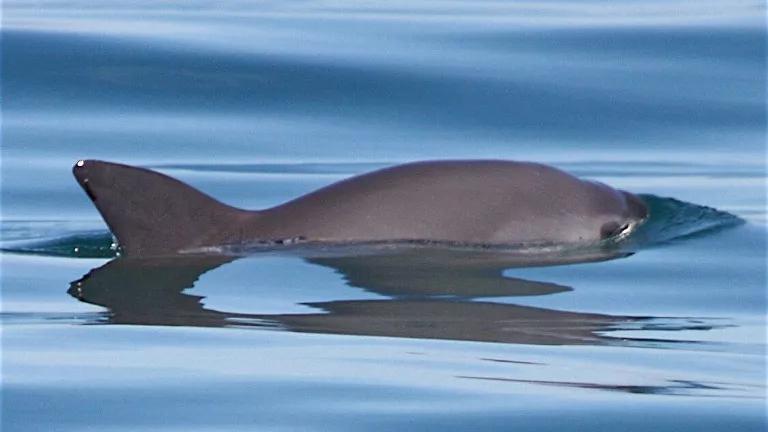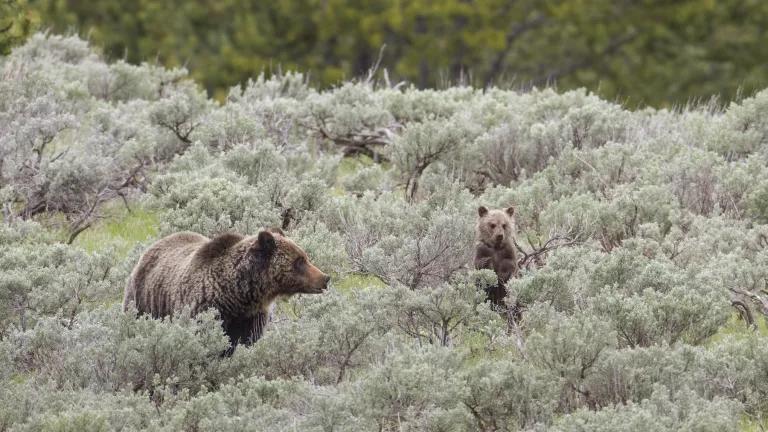Near-Extinct Vaquita Porpoise Gets Thrown Another Lifeline

The National Marine Fisheries Service expands ban on Mexican seafood to help protect the estimated 10 remaining porpoises.
The U.S. National Marine Fisheries Service (NMFS) announced that it will ban Mexican imports of shrimp and other seafood caught within critically endangered vaquita habitat in the northern Gulf of California, one of the country’s most valuable fishing regions. The decision—required under the Marine Mammals Protection Act (MMPA)—puts further pressure on the Mexican government to stop commercial fishermen from using gillnets, which notoriously entangle and drown vaquitas.
“This is exactly how the law protecting marine mammals is supposed to work,” says Zak Smith, a senior attorney at NRDC, which, with partners, sued the Trump administration in 2018 for failing to ban seafood imports caught with gillnets. In response to the lawsuit, which is still ongoing, the U.S. Court of International Trade ordered NMFS to enact a ban on four types of Mexican seafood (shrimp, curvina, sierra, and chano) caught with gillnets in 2018. “If Mexico’s fisheries kill vaquita at a rate that violates U.S. standards,” Smith continues, “the U.S. must ban imports.”
Gillnets are the primary cause of the species’ population plummet in recent decades—from around 560 in the 1990s to about 10 individual porpoises today. Scientists warn that if gillnets are not fully and permanently banned, vaquitas will go extinct. “It’s the only hope the vaquita has for survival,” Smith says, “and it is required if Mexico wants to resume exporting these products to the United States.”
Though Mexico banned gillnets in 2017, the government has failed to enforce the protections. In late 2018, the Sea Shepherd Conservation Society reported 70 small boats setting gillnets in vaquita habitat in just one day.
The latest decision by NMFS expands that existing ban to now include virtually all seafood caught in the northern Gulf of California, including highly profitable trawl-caught shrimp; curvina, sierra, and sardines caught with a purse seine net; sierra caught with hook-and-line; and almost any seafood caught with a gillnet, including anchovy, herrings, sardines, mackerels, croaker, and pilchard.
“Consumers in the United States do not want to be complicit in the extinction of any marine mammal, and this is reflected in the MMPA’s mandate,” says D.J. Schubert, wildlife biologist at the Animal Welfare Institute, one of the conservation groups involved in the lawsuit. “The breadth of these sanctions sends a strong message to Mexico that its utter failure to protect the vaquita will not be rewarded with access to U.S. markets.”
International pressure is also mounting against Mexico. In 2019, the World Heritage Committee threatened to revoke the World Heritage site status of the vaquita’s habitat if Mexico does not take corrective measures. “Mexico has no choice but to eliminate the destructive fishing taking place in the northern Gulf of California that is driving the vaquita to extinction,” Smith says.



